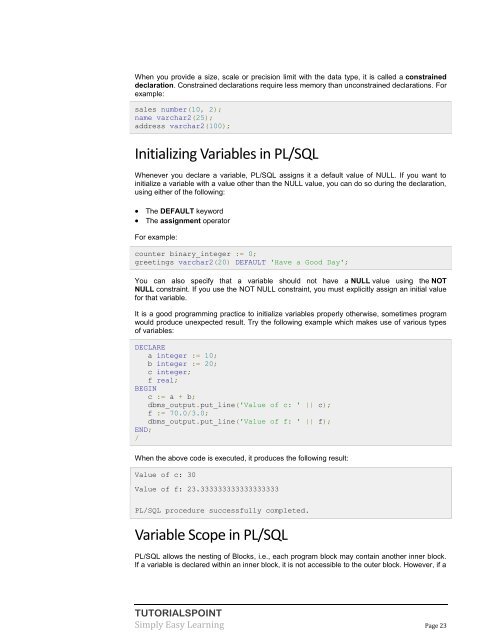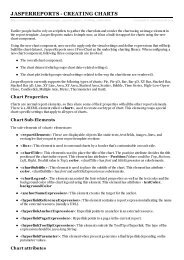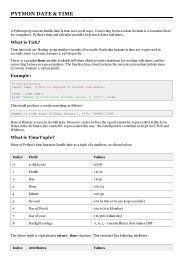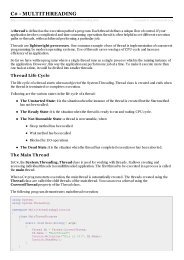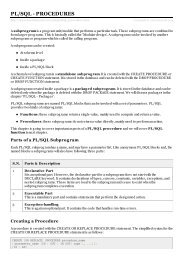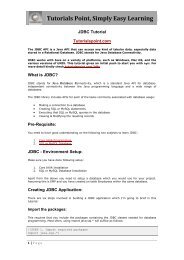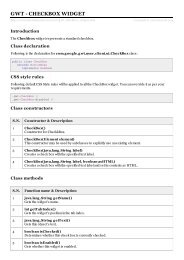download pl/sql tutorial (pdf - Tutorials Point
download pl/sql tutorial (pdf - Tutorials Point
download pl/sql tutorial (pdf - Tutorials Point
You also want an ePaper? Increase the reach of your titles
YUMPU automatically turns print PDFs into web optimized ePapers that Google loves.
When you provide a size, scale or precision limit with the data type, it is called a constrained<br />
declaration. Constrained declarations require less memory than unconstrained declarations. For<br />
exam<strong>pl</strong>e:<br />
sales number(10, 2);<br />
name varchar2(25);<br />
address varchar2(100);<br />
Initializing Variables in PL/SQL<br />
Whenever you declare a variable, PL/SQL assigns it a default value of NULL. If you want to<br />
initialize a variable with a value other than the NULL value, you can do so during the declaration,<br />
using either of the following:<br />
The DEFAULT keyword<br />
The assignment operator<br />
For exam<strong>pl</strong>e:<br />
counter binary_integer := 0;<br />
greetings varchar2(20) DEFAULT 'Have a Good Day';<br />
You can also specify that a variable should not have a NULL value using the NOT<br />
NULL constraint. If you use the NOT NULL constraint, you must ex<strong>pl</strong>icitly assign an initial value<br />
for that variable.<br />
It is a good programming practice to initialize variables properly otherwise, sometimes program<br />
would produce unexpected result. Try the following exam<strong>pl</strong>e which makes use of various types<br />
of variables:<br />
DECLARE<br />
a integer := 10;<br />
b integer := 20;<br />
c integer;<br />
f real;<br />
BEGIN<br />
c := a + b;<br />
dbms_output.put_line('Value of c: ' || c);<br />
f := 70.0/3.0;<br />
dbms_output.put_line('Value of f: ' || f);<br />
END;<br />
/<br />
When the above code is executed, it produces the following result:<br />
Value of c: 30<br />
Value of f: 23.333333333333333333<br />
PL/SQL procedure successfully com<strong>pl</strong>eted.<br />
Variable Scope in PL/SQL<br />
PL/SQL allows the nesting of Blocks, i.e., each program block may contain another inner block.<br />
If a variable is declared within an inner block, it is not accessible to the outer block. However, if a<br />
TUTORIALSPOINT<br />
Sim<strong>pl</strong>y Easy Learning Page 23


